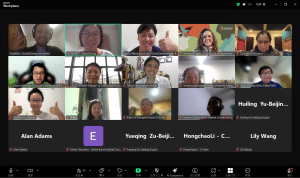Wang Zhenyao, Dean of the China Philanthropy Research Institute of Beijing Normal University and the China Global Philanthropy Institute, is a famous figure within China’s charity sector. In a recent interview with the China Philanthropy Times (公益时报), he shared his thoughts on the report of the Communist Party’s 19th National Congress.
During the interview, Wang was asked what effect the inclusion of social organizations as a pathway towards consultative democracy would have, and the consequent change in social organizations’ political status. Wang claimed that the inclusion of social organizations into the system of consultative democracy clearly reflected the enhancement of their political functions. Lots of social affairs have become priorities in the government’s agenda at present, and social politics has developed significantly. Under this condition, the participation of social organizations in relevant policy consultation can greatly improve China’s system of governance. Meanwhile, social organizations’ involvement in consultative democracy is a new issue for both social organizations and government departments. There is a strong need for exploring methods and accumulating experiences in order to form a positive interaction between the two sides.
Wang also told the China Philanthropy Times that the frequent mention of social organizations in the report represents a historic opportunity for social organizations, especially charitable ones. Many of China’s recent policies will further support the development of social organizations, and the government and nation will pay more attention to their opinions. Within the system of community governance, social organizations will facilitate primary-level regulation and promote their social functions. Within the system of environmental governance and the framework for poverty alleviation, social organizations, and particularly charities, will take on more social responsibility and lead to a faster implementation of the Charity Law. Additionally, Wang emphasized that social organizations must follow all related laws and policies, strengthen their own system and mechanism to optimize the governance structure, and develop a professional service system.



